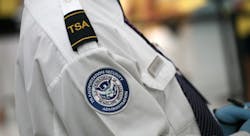House Leaders Put TSA on Notice for Implementing Reforms
The House Transportation and Infrastructure Committee issued the following news release:
House Committee leaders today put the Transportation Security Administration (TSA) on notice that they expect the agency to implement reforms included in a new aviation law ensuring that airports can opt out of all-federal security screening.
House Transportation and Infrastructure Committee Chairman John L. Mica (R-FL), Oversight and Government Reform Committee Chairman Darrell Issa (R-CA), and National Security, Homeland Defense and Foreign Operations Subcommittee Chairman Jason Chaffetz (R-UT) wrote to TSA Administrator John Pistole today regarding the opt-out provision in the FAA Modernization and Reform Act of 2012 (H.R. 658). Mica introduced this legislation in the House, and the President signed it into law in February.http://republicans.transportation.house.gov/Media/file/112th/Aviation/2012-03-13-Mica-Issa-Chaffetz-SPP_Pistole_Letter.pdf
The new law protects and strengthens the rights of airports to select the security screening model in which certified private operators provide screening under federal standards and oversight. This opt-out program is known as the Screening Partnership Program.
"TSA attempted to shut down this cost-effective and more efficient screening model for airports," Mica said. "The private sector almost always performs more effectively and efficiently than the federal government, and Congress intended airports to have the option between all-TSA screening and private-federal screening. However TSA attempted to thwart the opt-out program established by Congress when it created the agency in 2001."
Last year, TSA denied applications from six airports that applied to opt out: Orlando Sanford International Airport, Springfield-Branson National Airport, Missoula International Airport, Glacier Park International Airport, Bert Mooney Airport, and West Yellowstone Montana Airport (the latter was able to successfully opt out last month).
A report released by the Transportation Committee in 2011 found the opt-out program to be 65% more efficient and would increase taxpayer savings by at least 42%. If the nation's top 35 airports opted out, taxpayers would save $1 billion over five years.http://republicans.transportation.house.gov/Media/file/112th/Aviation/2011-06-03-TSA_SPP_Report.pdf
The new FAA law establishes clear criteria for TSA when considering opt-out applications, requires the agency to reconsider applications it baselessly denied, and ensures the rights of airports to select the private-federal screening model.
"Today, we have written to TSA Administrator Pistole citing his recent testimony to 'absolutely' work with Congress to improve the opt-out program through the implementation of this new law," Mica said.
To read the entire Mica/Issa/Chaffetz letter, click here.http://republicans.transportation.house.gov/Media/file/112th/Aviation/2012-03-13-Mica-Issa-Chaffetz-SPP_Pistole_Letter.pdf
In a separate letter, Mica also wrote today to airports across the country to ensure they know that under the newly signed aviation legislation, they have the right to opt out, and that the burden of proof is now on TSA to establish legitimate reasons why any airport's request should be denied.
Sixteen airports currently successfully operate under the opt-out program, and others are interested. Benefits of opting out, as reported by airports and by the investigative work of the U.S. Government Accountability Office and the Transportation Committee, include greater screening efficiencies and innovation, improved cost effectiveness, better customer service, improved employee morale, and greater flexibility for airports.
"TSA is a bloated bureaucracy of more than 65,000 federal workers with a track record of security blunders and failures," Mica said. "This agency has lost its way and has strayed from its security mission. It is top-heavy with 9,656 administrators in the field and 3,986 headquarters staff in Washington, DC making an average of $103,852 per year. The agency is too focused on personnel management on a massive scale, and not on setting the most effective security standards and analyzing intelligence. Ensuring that TSA can no longer arbitrarily deny airport requests to opt out is a critical reform. This agency must get out of the personnel business and into the security business."
Copyright Targeted News Services
TNS CT21CT-120314-3805003 61ChengTacorda
Copyright 2012 Targeted News Service LLCAll Rights Reserved

